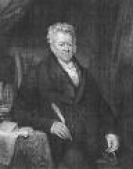i moved to England because i married an Englishman. this Englishman is a well-educated fellow employed by a highly-regarded boys school in London.
in America we would all call the school where he works a "private school."
this makes sense.
the institution, which has been around since 1509, has extremely high admissions standards and if a boy does meet the academic requirements, the boy's family still needs to be able to afford an exorbitant tuition fee for the boy to attend. they do have a sort of weak "scholarship" program for gifted boys without the full financial resources to attend on their own, but almost every boy in the school comes from an extremely wealthy background and their families pay dearly for them to attend.
my problem is this: in England schools such as this are called "public schools."
umm... pardon me, but i hardly think that that type of school can be considered "public."
so i looked into this contradiction in terms and found a relatively reasonable -- though outdated -- explanation. you see, once upon a time in old England these schools were "public" in the sense that they were open to all students in PRINCIPLE -- at the time of their foundation most were run by the established Church and were only open to males of the same Christian denomination. in PRACTICE, however, many such schools were highly academically selective and pupils needed to pass a Common Entrance Exam before being admitted, and if admitted also had to be able to afford considerable fees for tuition and (if boarding) room and board costs.
a few years down the historical road schools evolved and did not require a student to be a member of a certain aristocratic family or Christian denomination to be admitted. these too were called "public schools" because in THEORY any boy in the general public could TRY to attend regardless of aristocratic standing or religion.
later came tax-supported state-run schools (the ones we Americans would call public schools). the thing is, England was already using the phrase "public school" to refer to something that was not actually public by definition. it was still terribly elitist and heavily restricted to the average young person.
somewhere along the way America decided to call their own regular, tax-supported schools "public schools" -- after all, they were the ones truly open to the public without qualification -- and as private prep schools were founded in America the Americans rightly referred to them as "private schools" because they were privately operated on a high-fee basis.
this bit of history leads me to two questions:
should we "modern people" modify the words used to describe these schools to accurately reflect the true and current nature of the schools, or should we stick to the archaic old English words that no longer accurately define what the schools really are?
should English people continue to use words to describe schools that are the absolute opposite of their real meaning simply because it's "always been that way?"
this may be very American of me to suggest, but it seems like a little updating of terminology is in order.

 RSS Feed
RSS Feed